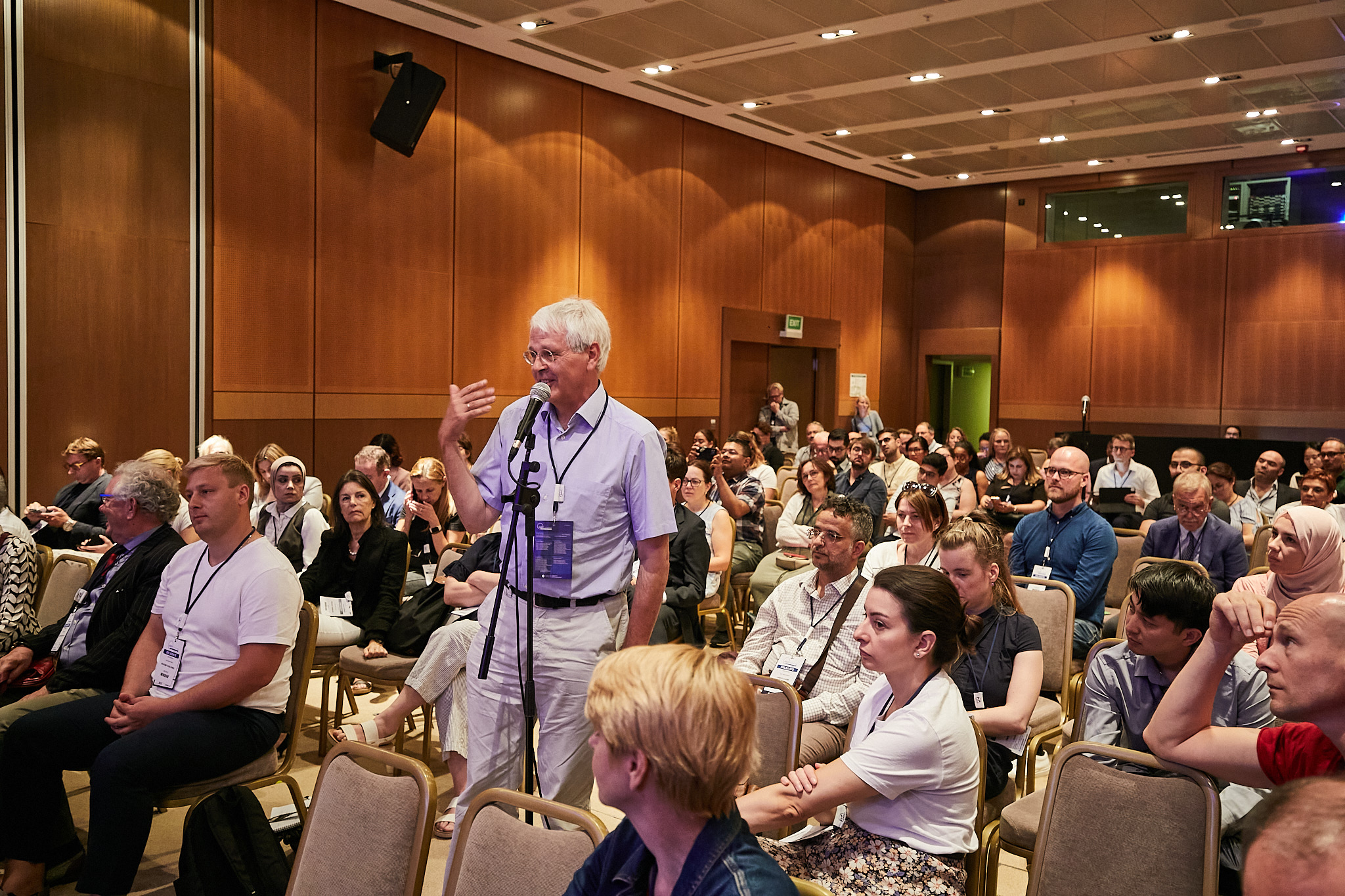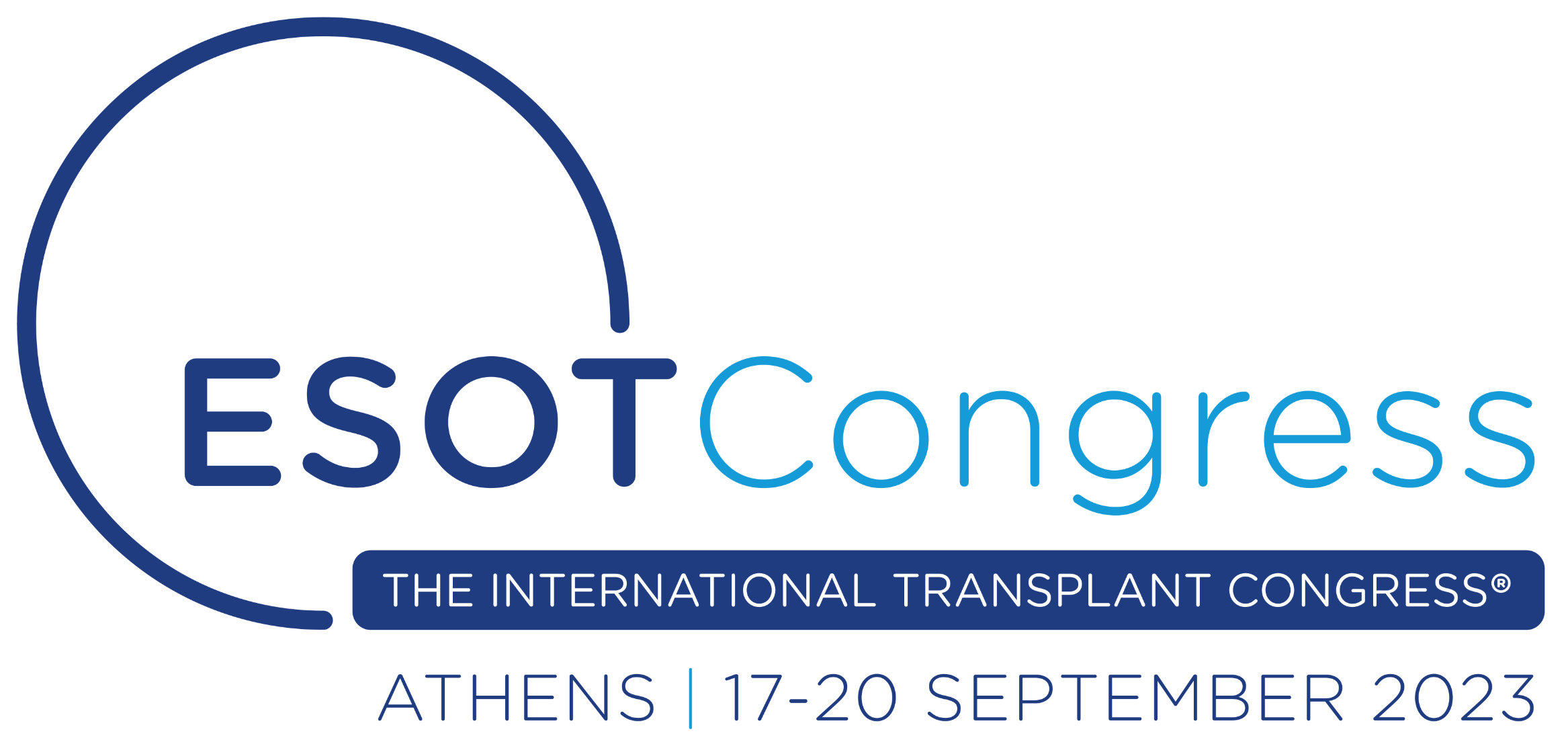Daily Recap: Day 1
Sunday 17 September
Welcome to the ESOT Congress 2023!
Keep an eye out for these Daily Recaps which will showcase the very best from the congress, from summarising the world-class plenary sessions capturing key science to acknowledging the meeting’s distinguished awardees.
As we delve into the overarching theme, “Disruptive Innovation, Trusted Care”, we reflect on the recent challenges in healthcare and explore how technology can improve access to transplants, enhance the delivery of care, and establish a culture of innovation. Through fostering open communication, reducing healthcare variation, and empowering transplant recipients and their families in decision-making processes, we will look to rebuild and modernise transplant care.
Thank you for joining us on this journey – we look forward to shaping the field of transplantation together.
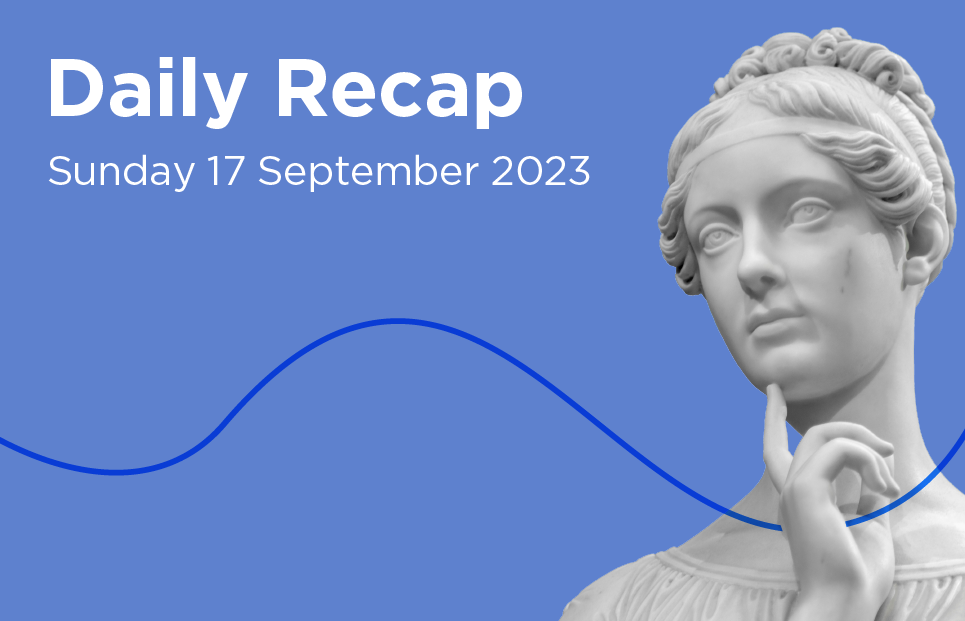
Opening Plenary Session
After the most challenging time in healthcare, it’s a joy to meet again”, explained Gabriel Oniscu, who was joined on stage by fellow Congress Co-Chair John Boletis. “We are delighted to welcome nearly 3,000 participants from 82 countries, and there is no better place to do this than Athens,” added Gabriel Oniscu.
The session reflected on the impact of the pandemic, a challenge which exposed deficiencies in every health system across the globe. However, communities and countries were brought closer than ever before, demonstrating the immense power of collaboration in enabling the rapid development of disruptive solutions, technology and digitalisation.
As we now emerge on the other side of the pandemic, we witness a new technologically driven world, with a surge of disruptive technologies which hold immense potential but also bring unprecedented challenges. Exploring the pivotal role of technology, keynote speaker John Nosta emphasised the huge role that digitisation is now playing in healthcare and how we are being pushed across a new threshold. “We’re seeing the emergence of data, insights and technology that are transforming not only transplantation, but also humanity itself. I like to call it the second big bang – technology is now advancing beyond the level of human capability. When you ask, ‘who is the smartest person in the room?’, it may have once been the doctor but it may very well be technology now.”
Donna Cryer, who received a liver transplant 28 years ago, added, “Innovation is an act of will. It is strategic. It has a plan, an intention, a purpose.” Speaking about how to make access to organ transplantation more widely available and standardised, Donna Cryer asked the audience to reflect, “How can we speed up the best practices to reach every corner of the community?” While Donna Cryer appreciates that she has been fortunate enough to receive good healthcare and has responded well to her treatment, she reflected on other patients who may not have been so lucky.
Honorary Co-Chair Pisana Ferrari explained, “As a pulmonary arterial hypertension patient who underwent a double lung transplant over two decades ago, I am filled with anticipation for the transformative discussions set to happen over the next few days that will continue to push the boundaries of transplantation across the world. Thank you for letting me be part of this extraordinary journey.”
“Let’s make Athens the epicentre of knowledge, debates and learning”, emphasised Gabriel Oniscu.
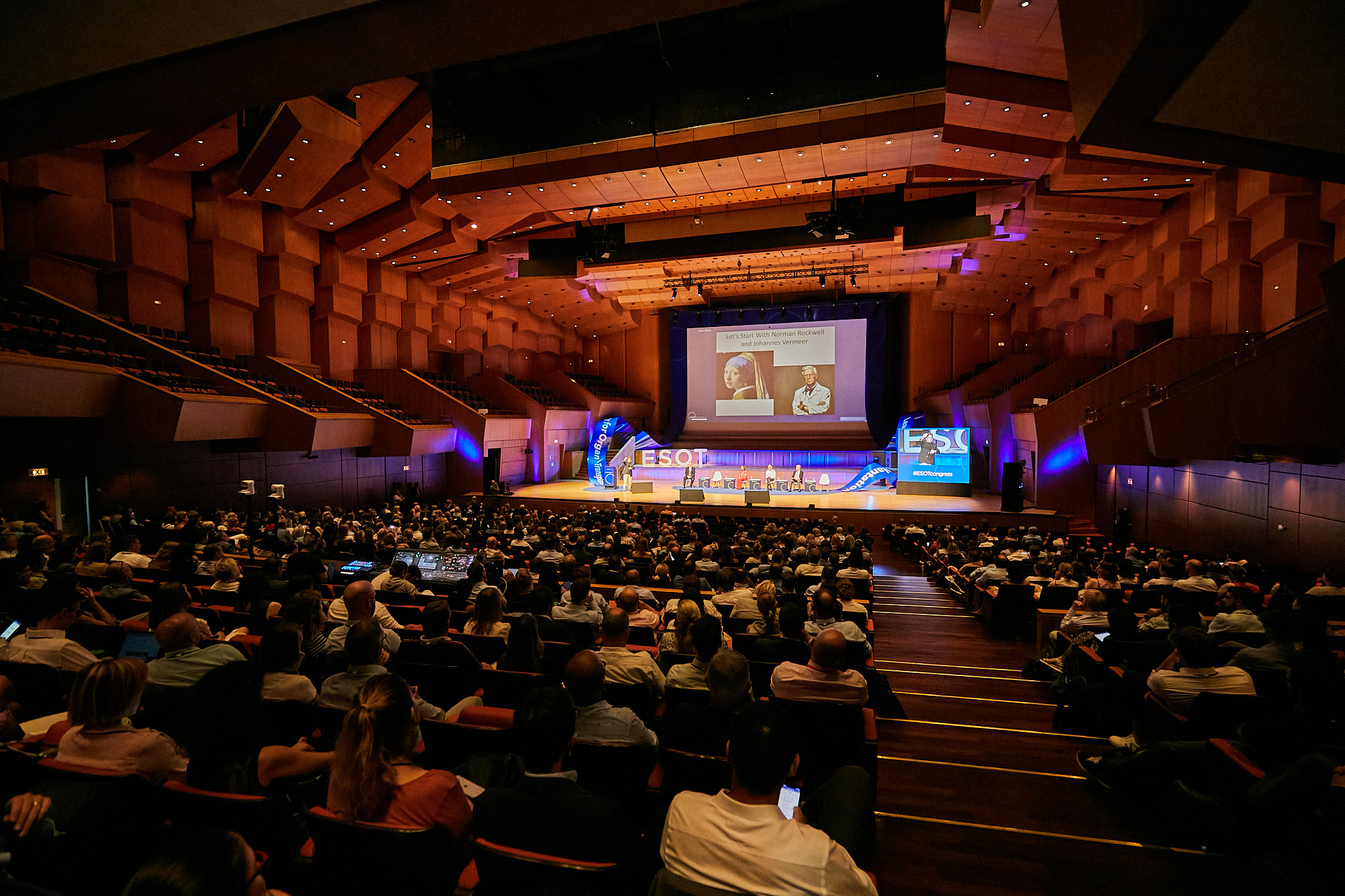
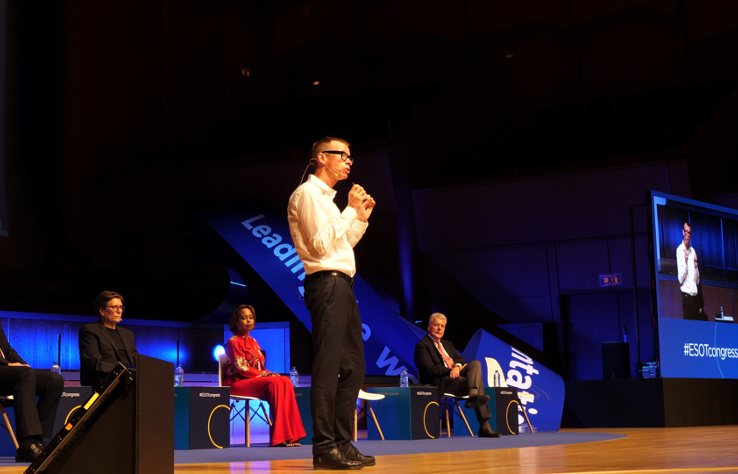
Scientific Highlight
Blood group A successfully enzymatically converted to group O in human kidneys
In a breakthrough study, enzymatic conversion of blood group A to O in human kidneys demonstrated a 70–80% reduction in blood group A antigens within 2 hours of normothermic machine perfusion (NMP) and 6 hours of hypothermic machine perfusion (HMP). Currently, organ allocation is constrained by ABO blood group typing, resulting in longer waiting times for patients with less common blood types. This preclinical study utilised enzymes from the anaerobic bacterium Flavonifractor plautii to convert human blood group A kidneys into universal blood group O.
Six pairs of human kidneys were employed in the study. Three pairs underwent 6 hours of ex-situ NMP to mimic physiological conditions and restore cellular function, while the other three pairs underwent 24 hours of ex-situ HMP to reduce complications, cellular injury and inflammation. One kidney from each pair received enzyme treatment. Antigen expression was measured using immunofluorescence microscopy on cortical biopsies collected during perfusion. Results showed a significant loss of blood group A antigen expression after 2 hours of NMP (83.4±10.2%; P=0.012) and 6 hours of HMP (71.2±21.9%; P=0.066), while no significant changes were observed in the control kidneys. Haemodynamic perfusion parameters remained stable in both cohorts, with no significant differences between control and treated kidneys.
Macmillan S, et al. Enzymatic conversion of human blood group a kidneys to universal blood group O. Presented at the ESOT Congress 2023; 17 September 2023; Athens, Greece.
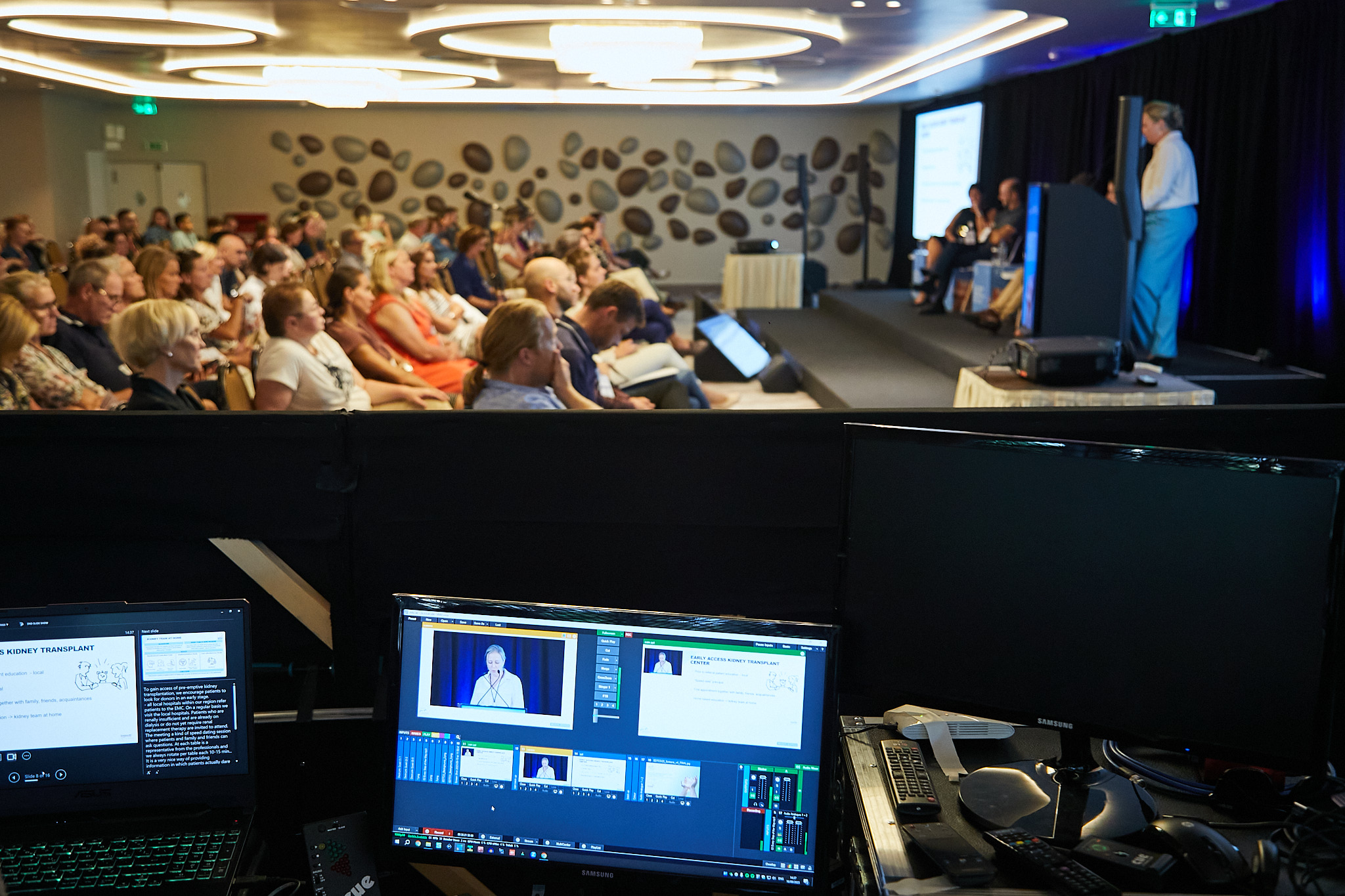
ETAHP Transplant Care Management Award
Recognising quality among transplant nurses and allied health professionals (AHPs)
The inaugural European Transplant Allied Healthcare Professional (ETAHP) Transplant Care Management Award was presented today at the ESOT Congress 2023. During the presentation, Marleen van Buren, ETAHP Co-Chair, presented the award. “It is a great pleasure to introduce this new award with ESOT. We understand that optimising patient outcomes cannot solely be achieved through scientific innovations, the collaboration of HCPs is also crucial. This award aims to stimulate innovative and quality improvement projects that support nurses and AHPs in providing care to transplant candidates and recipients within European transplant centres.”
Marleen added, “We received many projects, all providing great examples of working with the multidisciplinary team. It is with pleasure that I announce the winner of this award, Robert van der Stoep from Erasmus Medical Center in Rotterdam.”
Upon receiving the award, Robert discussed his team’s winning project, which focuses on how heart transplantation and left ventricular assist device patients encounter several difficulties during rehabilitation. The project uses educational videos to improve knowledge of the patient, their caregivers and health professionals. Robert added, “I want to extend a great thank you to ESOT. Our team were really glad to make this project happen and we are very happy to receive this award”.
ESOT extends its warmest congratulations to Robert as the very first recipient of this accolade.
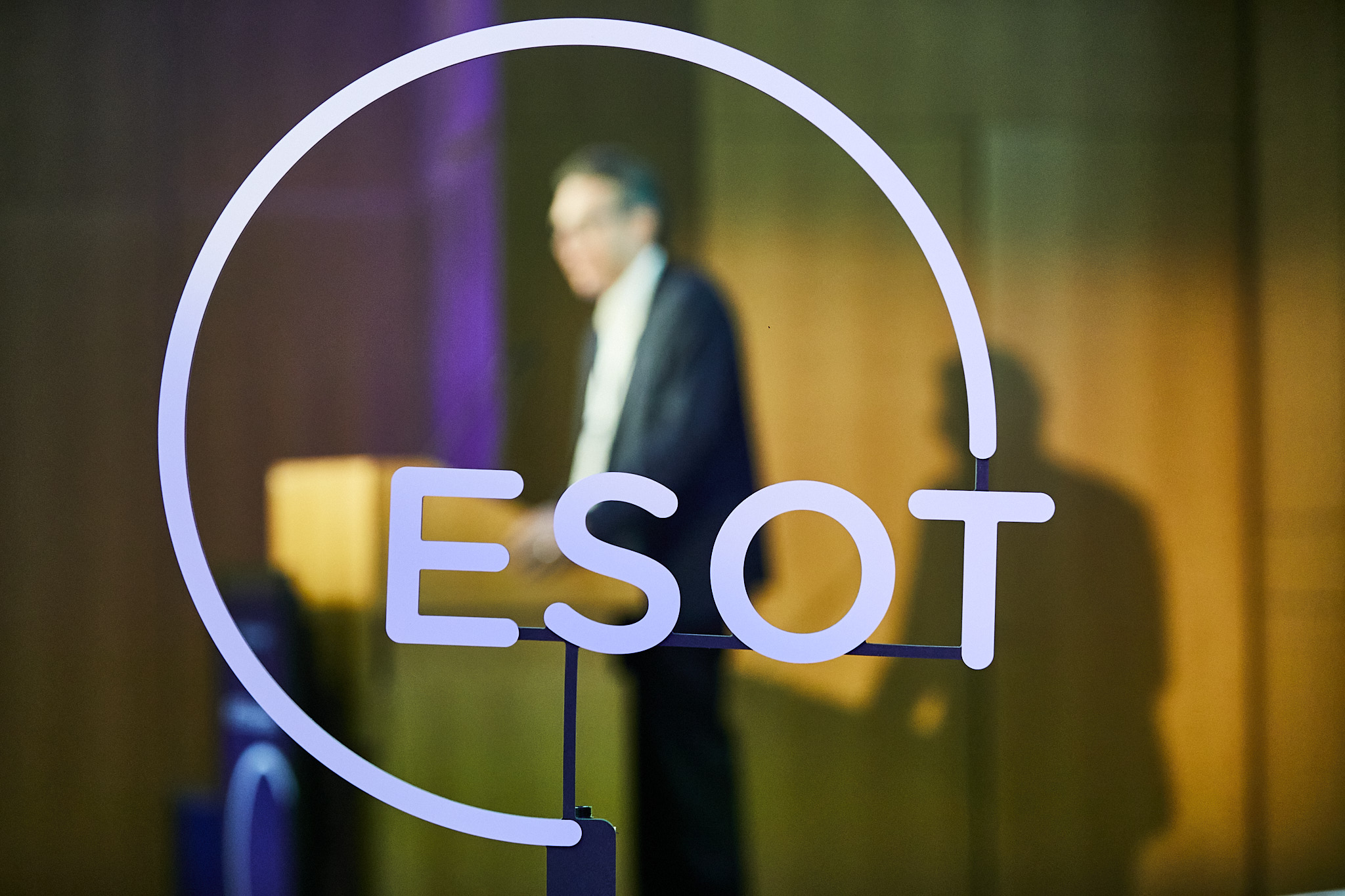
Scientific Highlight
Islet transplantation boosts long-term survival in kidney transplant recipients with type 1 diabetes
A new study has revealed how islet transplantation can significantly reduce the risk of transplant failure and enhance life expectancy in individuals with type 1 diabetes who undergo kidney transplantation. This breakthrough research compared the long-term outcomes of patients with type 1 diabetes who underwent kidney transplantation and received an islet transplantation, with patients who underwent kidney transplantation and then managed their diabetes with insulin alone. The study found that islet transplantation exhibited a substantial advantage over insulin treatment, significantly reducing the risk of transplant failure and mortality.
The researchers investigated every patient with type 1 diabetes in France who received a kidney transplant between 2000 and 2017. Among 2393 patients, 327 were eligible for islet transplantation, including 47 that were actually transplanted with islets. After comparing the two groups, the researchers found that islet transplantation had a significant benefit over insulin alone in terms of reducing the risk of transplantation failure and death. The results showed a 0.47 hazard ratio for graft failure in the islet transplantation group, indicating a 53% lower risk of failure compared with the insulin-only group. As well as this, patients who received an islet transplantation had a higher estimated life expectancy for a 10-year follow-up (9.61 years compared with 8.85 years for those on insulin alone).
Notably, when investigating the outcomes of islet transplantation alone, two crucial positive outcomes were identified. At the 1-year mark following the islet transplantation, there was an estimated 89.4% probability of graft survival. Additionally, patients were estimated to have a 70.2% probability of achieving independence from insulin at 1 year.
Maanaoui M, et al. Islet transplantation versus insulin alone in type 1 diabetic kidney transplant recipients: a French nationwide study on behalf of the TREPID group. Presented at the European Society for Organ Transplantation Congress; 17 September 2023; Athens, Greece.
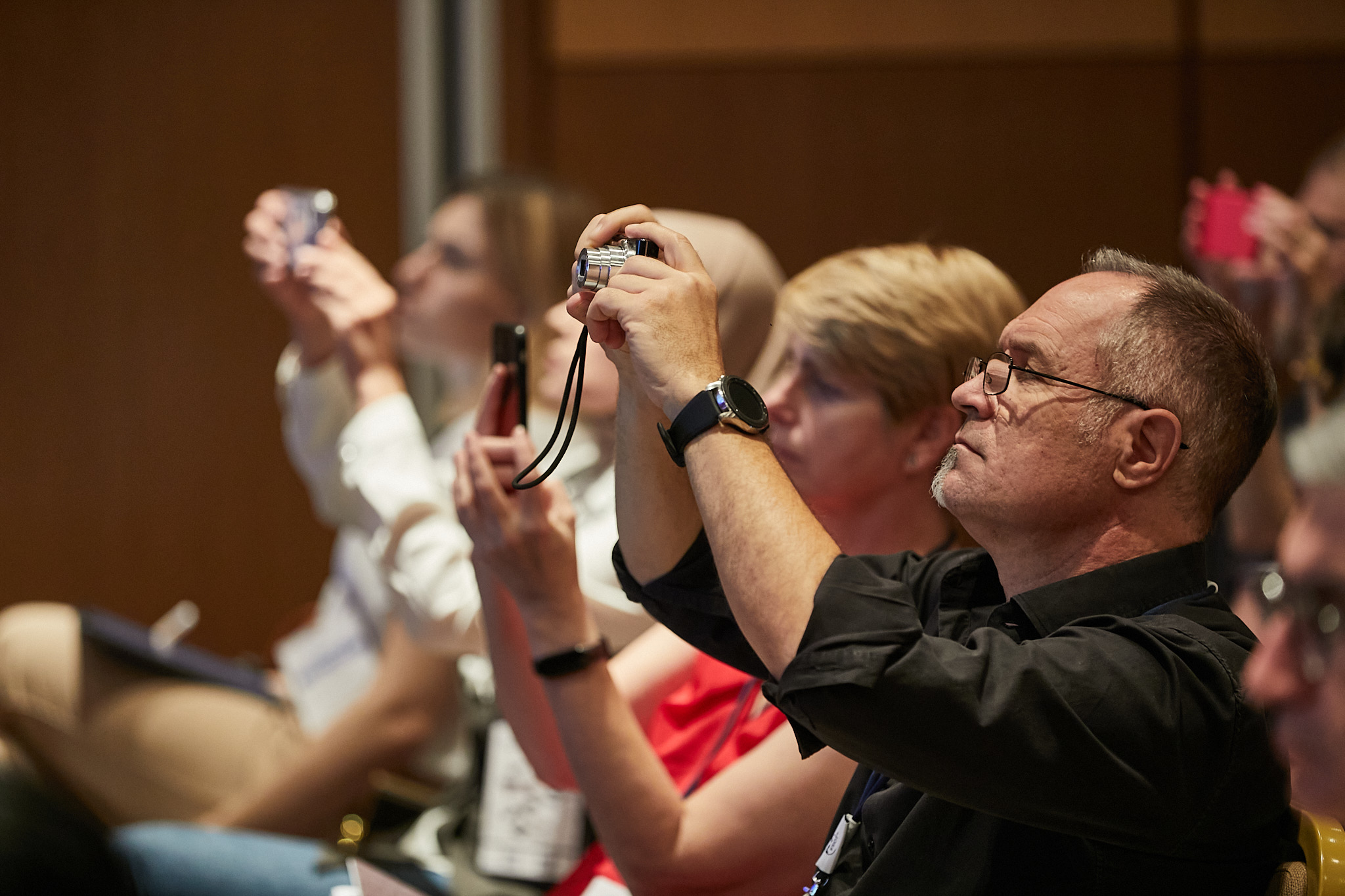
Scientific Highlight
Neonatal kidney transplantation offers new hope in the organ shortage crisis
Research presented today demonstrates that neonatal kidney transplantation can offer a ‘game-changing’ solution to the pressing organ shortage crisis.
To assess the feasibility of neonatal organ donation, researchers analysed neonatal mortality in the United States and the long-term development of these kidneys after transplantation as well as the ethical and social considerations surrounding the procedure. The study revealed that out of the 21,000 infants who lost their lives in 2020, more than 12,000 could have been considered as viable organ donors.
The organ shortage is one of the greatest challenges facing the field of organ transplantation. As of January 2022, there were 100,000 patients on the waiting list for kidney transplantation in the US, with just 24,669 kidneys transplanted in the previous year. Alarmingly, this donor pool shortage contributed to the deaths of 5,000 patients on the waiting list. This crisis is not unique to the US. Across Europe, organ supplies cannot meet the increasing demand, and an average of 15–30% of patients on waitlists die each year.
Nghiem D. Neonatal organ donation for kidney shortage; Is this the time? Presented at the European Society for Organ Transplantation Congress; 17 September 2023; Athens, Greece.
